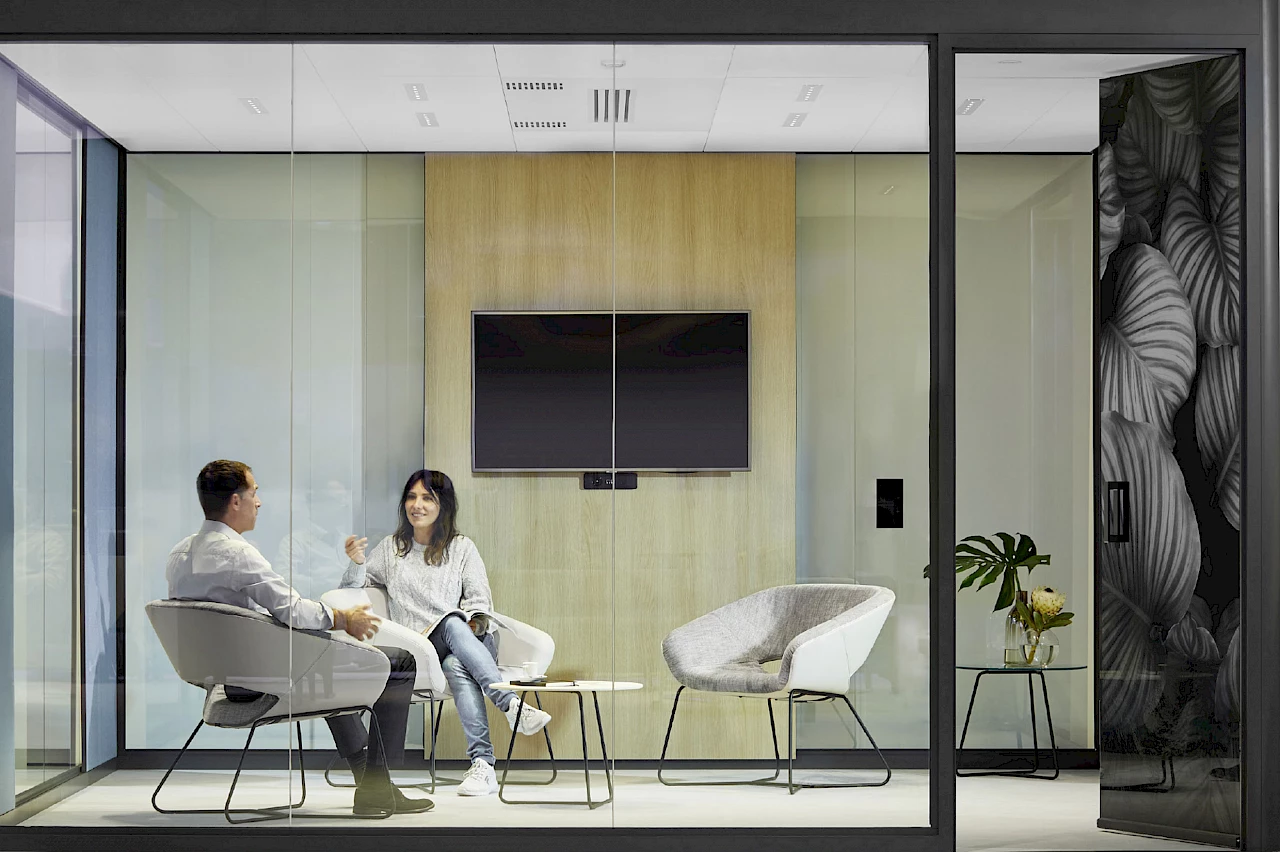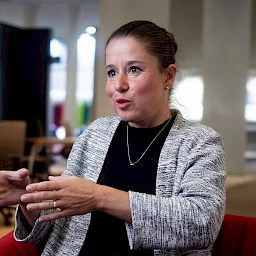“What are offices actually good for?” is a question that many companies, spatial designers, facility managers and HR executives are currently asking themselves. In times of hybrid work, the office has lost its unique selling proposition and is competing more than ever with alternative workspaces for attractive workplaces.
How will we shape work in the future? What framework conditions and spaces are required so that people can work together more creatively, more innovatively and also more productively? To what extent must the attitude of offices change in order to become places that employees like to visit regularly? A quest for the role that offices could take on in the future.
The office as a place for maintaining relationships
If there is one thing we have missed in the world of work over the last few years, it is particularly social contacts and get-togethers with colleagues. Many employees felt lonely during the pandemic and the topic of “mental health” is also more relevant than ever. There is a need for a place to meet, to communicate and to maintain relationships, and that in all types of team. Even if in mature teams the need for exchange may not be quite as strong as in young teams, in the long run there is a need for encounter and a place for both spoken words and non-verbal communication everywhere. For example, in the context of coincidental meetings with colleagues on the sidelines of planned meetings. Or also in spontaneous conversations and “quickly throwing a question across the table to a colleague”. Especially with critical issues, physical space is important in order to be able to recognise whether it is the right time to address a topic concretely.
The office as creative hub
On site project phases are a necessary for creative, innovative work. The fact that creativity needs the right space and that Miro boards are not the right tool for it is something we have known not only since the New Work Order studies by the Hamburg trend researcher Birgit Gebhardt. The world of work needs spaces that actually allow creativity, out-of-the-box thinking and innovation. Spaces that are designed to meet the needs of their users and facilitate collegial exchange, brainstorming sessions and workshops in smaller and larger teams. Offices have the potential to manage collaboration and communication even better in the future. However, this requires the redesign of existing office spaces towards spaces with more emotionality, enlarged communication and creative areas and workplaces that enable learning experiences in teams.
The office as a place for hospitality
People appreciate being at places that welcome them in a friendly manner and offer them a high quality of stay. What has long been part of the DNA in the hotel and catering industry can also inspire the role of offices. Attractive workplaces with different space offers – which can be used flexibly by employees – can be a success factor in the future. The office as a feel-good place, where employees enjoy spending their time. The office as a habitat. As a space that intuitively senses the needs of its users and is also pleased to fulfil them. A space that is committed to people and wants to give them beautiful moments and experiences. Who can meet the requirements of “corporate hospitality” better than the office with its diverse spatial design choices?
The office as place of identity
When new colleagues come on board, companies need a place to support their onboarding and help new employees immerse themselves in the corporate culture and familiarise themselves with the values and working practices in the organisation. Meeting one’s team members in real life and getting to know managers personally are important elements for employee satisfaction, self-organisation and retention. However, the importance of designing attractive offices starts much earlier, in the recruiting process. Physical space is essential as a proven, positively evidenced employer branding feature or as a tool to convey an authentic impression of the corporate identity in job interviews.
Regardless of what role the office will take on in the future: The current transformation of the world of work illustrates how important it is to rethink the office to make it fit for the changed requirements. It tages new perspectives, more versatile workspaces and the courage to question previous concepts in order to pave the way for other – new – spaces.




 Jasmin Najiyya
Jasmin Najiyya 

